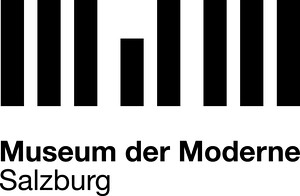Mönchsberg
Mönchsberg 32
5020 Salzburg
Austria
Hours: Tuesday–Sunday 10am–6pm,
Wednesday 10am–8pm
T +43 662 842220403
info@mdmsalzburg.at
On June 20, 2020, the Museum der Moderne Salzburg has reopened to the public with new exhibitions.
The major monographic exhibition dedicated to Friedl Kubelka vom Gröller has been extended. An exhibition on series of works by Japanese photographers from the museum’s own collection testifies to the fact that, since 1976, Austria has been the most important gateway for the dissemination of Japanese photography in Europe. The exhibition Wilhelm Thöny. Dreaming in Times of Crisis was originally scheduled for spring and will now be a highlight of our summer program. Thöny emigrated to New York in 1938, and displacement, flight, and exile also are central themes of the exhibition Scenes of Exile that focuses on cities where German and Austrian artists found refuge during the Nazi tyranny. The large summer exhibition originally planned for the end of June by British-Nigerian artist Yinka Shonibare CBE had to be postponed to spring 2021.
Exhibitions
Friedl Kubelka vom Gröller
The Self in the Mirror of the Other. Photographs and Films, 1968—2018
June 20—November 1, 2020
Mönchsberg
Presented by Generali Foundation
This exhibition pays homage to Friedl Kubelka vom Gröller (1946 London, UK—Vienna, AT), one of the most remarkable Austrian artists of recent decades. It offers a rare opportunity to see her oeuvre in a comprehensive survey of photographs and films from the Generali Foundation Collection, the Austrian Federal Photography Collection and the collection of the Museum der Moderne Salzburg, rounded out by works on loan from the artist’s private archive.
Wilhelm Thöny
Dreaming in Times of Crisis
June 20—October 11, 2020
Mönchsberg
The Museum der Moderne Salzburg’s first exhibition devoted to Thöny’s oeuvre since 2010 presents around two hundred works from the museum’s own collection. One highlight in the show are the (letter) illustrations in the artist’s Scrap Book from the 1930s. Observations from everyday life captured with lighthearted humor are interspersed between reflections on the increasingly oppressive political situation. It is the first time that this body of work, which is of outstanding value both for its artistic quality and as a document of its time, is shown in its entirety in Salzburg.
The City—The Countryside
Japanes Photography of the 1960s and 1970s from the collection of the Museum der Moderne Salzburg
June 20—September 13, 2020
Rupertinum
In The City—The Countryside, the Museum der Moderne Salzburg revisits its globally unrivaled collection of Japanese photography of the 1960s and 1970s. The outstanding series “Toshi-e / Towards the City” (1974) by Yukata Takanashi (1935 Tokyo, JP) and “To the Village” (1973–76) by Kazuo Kitai (1944 Anshan, Manchukuo, CN) are the centerpieces of the presentation, complemented by a magnificent array of big-city lights and Asian landscapes.
Two Faces
Video Portraits from the Generali Foundation Collection
June 20—September 13, 2020
Rupertinum, Generali Foundation Study Center
Presented by Generali Foundation
The exhibition presents classics from the Generali Foundation’s extensive video collection to investigate this conception of the portrait as an instrument of self-analysis.
Scenes of Exile
July 25—November 22, 2020
Mönchsberg
The third part of the exhibition series on artists with exile backgrounds centers on their destinations for escape, which are spread all over the world, with a special focus on the city and province of Salzburg. The individual exile experience of those affected depended largely on the country of asylum itself, in addition to their personal and professional circumstances. Not only did its location and climate play a role, but also the entry conditions, the political and economic situation, and the cultural environment had a major impact on the life, acculturation and professional career of the artists. The exhibition devotes chapters to Louise Kolm-Fleck, Walter Trier, Wolf Suschitzky as well as to Lotte Laserstein, Else Lasker-Schüler and Victor Papanek.



